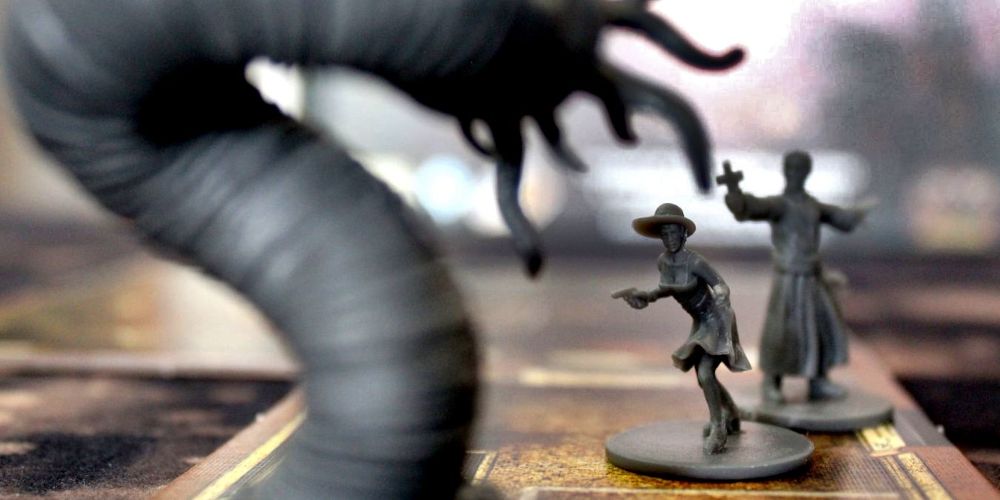Board game nights are one of my favorite things to do, but it only takes one bad apple to ruin an otherwise awesome session.
Or worse, cause enough problems that the board gaming group breaks up altogether. Yeah, that's happened to me.
None of us ever wants to be that guy (or girl), which is why it's important to always keep board gaming etiquette in mind. You don't want to piss someone off—even unintentionally.
Here are the golden rules of board gaming etiquette that will ensure every game night goes smoothly and ends up being fun for everyone involved.
1. Pick a Game Everyone Will Enjoy
If half your gaming group hates social deduction games, then skip the genre altogether. Nothing's worse than playing a board game with someone who doesn't want to play—except maybe being that person who's pressured into playing something he hates.
Yes, this golden rule might mean that you not get to play your favorite board games. If you only have one board gaming group, you may have to give up some games you love in order to play the games that everyone likes.
That's a compromise worth making if it'll ensure fun times. Want to play those other games? Find a separate group that enjoys them.
2. Don't Like That Game? Sit Out
It's healthy for a gaming group to experiment with new games every so often—even the occasional game that falls into a genre that someone may not be interested in.
Sometimes, that someone might be you.
Yes, the group should be considerate and suggest games that everyone will enjoy. But that can be tough. Maybe there's a game that everyone wants to try, and you're the only one who doesn't.
If you find yourself in that situation, the polite thing to do is play anyway and try to have fun. But if you're just going to end up complaining, yawning, arguing, and bringing down the mood? Do everyone a favor and sit the game out.
Then again, if it keeps happening over and over, that's a sign that you don't fit and should find a different group more to your tastes.
3. Don't Abandon Games Halfway
Maybe you've agreed to try a new game but partway through you realize it just isn't very fun or interesting.
You could easily give up and walk away and wait until the next game comes out. Or you could be a mature grown-up and stick it through so everyone else can reach a proper conclusion.
And all throughout, you should smile and keep your spirits up instead of whining or grumbling—even if the game does suck.
4. Watch How-to-Play Videos Beforehand
If you're the kind of person who actually listens intently when someone is teaching rules to a new board game, that's awesome and this tip doesn't apply to you.
But if you're prone to being distracted and can't pay attention for long, just watch a "how to play" video on YouTube before attending game night. For the love of God, just do it!
Of course, this is only possible if you know there's going to be a new game at the next session and you know what that game is. If no one tells you ahead of time, you're off the hook.
5. Be Gracious Toward Mistakes
Board games are getting more and more complex. Some rulesets can't be fully known until you've played multiple times—and even then they can still be confusing.
If someone makes a mistake, give them the benefit of the doubt, even if they've played the game a few times before. What's the harm in being kind? It's only a game, after all.
6. Helping Is OK, Quarterbacking Isn't
Every participant in a board game is their own player. They have the right to make their own game decisions.
If they ask for help, it's OK to give it to them. If you think they're overlooking something, it's OK to mention it. You might even recommend certain actions if they're new.
But once you start dictating what a player should do, and if you get mad when they do something else, you've overstepped lines.
7. Treat Cards and Pieces With Respect
Board games are expensive!
Games like Gloomhaven and Mage Knight can be $100 or more. The Dark Souls board game is around $75. Even a simple game like Hive or Blokus costs $25 or so.
It's not unreasonable that owners want their games to last as long as possible, which means players need to be mindful of how they handle cards and pieces during play.
Never bend, warp, or crease cards! If it's subconscious and you can't help it, buy a card holder. Otherwise, don't be surprised if people don't want to play with you anymore.
8. Phones Stay Hidden or Silent
I once suffered through a three-hour game of Catan, all because one player couldn't tear himself away from his phone.
Time practicalities aside, it's just rude to divide your attention between a social experience (the board game) and a private experience (browsing your phone).
If you're a smartphone addict and can't control yourself, sock it away in a drawer until game night's over.
9. Never Play While Hungry
Hunger while gaming can lead to rash decisions, flared tempers, and soured nights. As a group, you should all agree to eat beforehand—or make it clear that snacks and refreshments will be served during game night.
Just make sure you avoid messy options like saucy wings and coated chips. Check out some of our own snack ideas!
10. Speak Up, Don't Simmer
At some point, something you don't like will happen.
When it does, it's imperative that you deal with it as soon as possible, as tactfully as possible—even if you hate confrontration and feel awkward bringing it up.
Don't bottle it up, sit on it, and explode later on. Most of the time, the result will be that you get kicked out of the gaming group no matter how justified your frustrations were.








